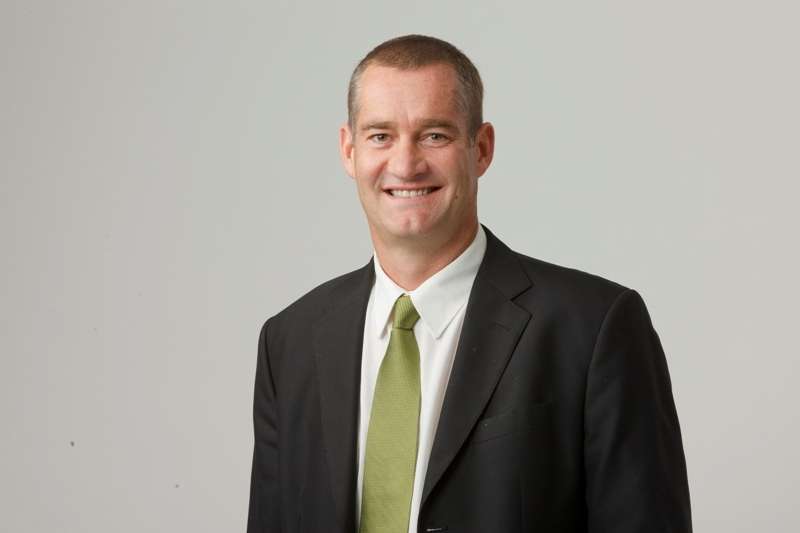“To be unemotional when dealing with the variables that one encounters. Accept risks and the changing environment and have a conservative matrix within which decisions are taken.” That is what a good CFO should be able to do, and don’t, according to Wim de Klerk (49), Finance Director of Exxaro Resources Ltd.
Prior to becoming CFO of Exxaro, Wim joined the Iscor Limited Executive team in 1996 as group general manager for strategy and continuous improvement. During this period he managed Iscor Quarries and the Grootegeluk Coal mine. Since the inception of Kumba Resources in 2001 Wim headed up the Mineral Sands commodity portfolio and after the re-listing of Kumba as Exxaro in 2006. He was appointed as Executive General Manager for Mineral Sand and Base Metals until his appointment as Finance Director in 2009. Exxaro currently employes 10,500 people and was listed on JSE in 2007.
When it comes to academic qualifications, Wim has quite a few: B.Com (Hons) Acc CA/SA, Executive Management Programme (Darden) and a Strategic Marketing Diploma, which he obtained at Harvard.
 1. What do you enjoy most about your job?
1. What do you enjoy most about your job?
I enjoy how every day is different, the great variety I experience and that I never work with the same content.
2. How do you perceive the role of the CFO has changed in the last five to ten years?
I feel it is much more focused on risk and longer term issues with a forward-looking bias. The CFO plays a multi-disciplinary role within the company, carrying influence and accountability way beyond financial affairs - covering the full spectrum of company activities. The CFO is involved in all areas that relate to the sustainability of the business.
3. How do you see the role of the CFO evolving in the next say five to ten years?
I personally think that, with issues such as a continuously changing environment, risk based decisions, environmental pressures, focus on governance etc, our role will become intensely focused on future issues.
4. Would you say that accurate forecasting and budgeting is still feasible for a financial department in today's tumultuous financial markets? How do you deal with the volatility?
Accurate forecasting and budgeting is absolutely critical. We work within ranges of macroeconomic variables. Volatility is mitigated by the building of different economic scenarios that enable one to plan, to the extent possible, for the developments that take place in local and global markets.
5. What do you see as the greatest challenge for South African companies in the global economic situation and for your industry in particular?
Mining has become an emotive environment so focusing on our licence to operate is key. We do this by involving communities, sharing returns with stakeholders (eg. Exxaro's Mpower employee share scheme that paid out more than R1 billion to lower level employees last year) and joint solution seeking that will dictate mining companies'ability to be sustainable.
Mining companies need to ensure compliance with the Mining Charter and take steps to comply with environmental, health and safety and other legislation. The sustainability of mining companies also depends on reliable infrastructure such as rail and ports, with good availability of electricity and water supply that will support growth.
6. Which skill do you think a finance professional should master to be most successful in his work?
To be unemotional when dealing with the variables that one encounters. Accept risks and the changing environment and have a conservative matrix within which decisions are taken.
7. Which achievement or project in your business career are you most proud of?
Persisting with significant investments in the mineral sands industry when everyone was getting out of the market, and now being able to reap the benefits of a more upbeat industry. This was achieved by believing in the fundamentals of the industry.
8. What three things must you do every single day to feel fulfilled in your work?
Firstly I must be challenged on a daily basis, and be able to challenge others myself! Secondly, one should never accept "no" or "it can't be done" as an answer. Thirdly I like to distance myself from negative people, every day again.
9. Who is your role model in life and why?
I can't really pick one person in particular, I am afraid. Many people around me have elements that I admire, so it is difficult to name one.
10. What vital piece of advice would you give young ambitious finance professionals?
Don't be over ambitious and too impatient. Having the advantage of experience in various disciplines of management is crucial to be able to be a stable CFO. Make sure you spend time in operations, marketing, technology management and strategy before you go for the top finance position. You'll learn quickly that finance as a university is 10% of the day job of a CFO - so spend some time to develop that other 90%!
Stay connected, up to date and in the loop on what is happening in the world of finance by subscribing to our newsletter and following us on Twitter. Also to keep track of newly published interviews with CFOs and CEOs.
category: Interviewing the CFO








